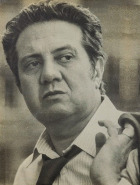

In Oliveira Martins 's view , studying Portugal's national past was one of the best ways to understand the state of contemporary society and to act in accordance with that reality. Consequently, several of his historically inclined works focused on a past that was relatively close to his time. According to Soares, the foreign influences Oliveira Martins drew upon—German and French—were always interpreted through the lens of Portugal’s specific circumstances, adapting them to what Martins described as "our secular decline" ( Soares, Oliveira Martins e o Fontismo: Monografia de História , 1951, pp. 51–52).
His programme is presented as a clear opposition to Fontismo . The main contrast lies in the protectionism advocated by Oliveira Martins versus free trade, with the author linking this protectionism to a form of French-style academic socialism (Émile Laveleye). He criticises the government’s inability to foster national industry and the poor financial return for Portugal ( ibidem , pp. 59-62). However, the monarchy is seen as a means to achieve a stage of national democratisation through the "strengthening of royal power and a firm dictatorship" in the 1880s, as if it were a reform initiated from within the regime ( ibidem , pp. 66 and 95). Soares thus seeks to contribute to the understanding of something broader: the ideological roots that shaped the emergence of the First Portuguese Republic.
However, Soares’s study of Oliveira Martins extended into other mediums. Building on this dissertation, he wrote an article titled Nota sobre a actuação pública de Oliveira Martins [Note on Oliveira Martins’s Public Actions] for Vértice in 1951, reiterating some of the ideas he had already expressed. For instance, he reaffirmed Martins’s "utopias of a vague academic socialism," which "has socialism only in name." He also acknowledged that " [ Martins’s ] involvement in public life was overly deliberate, overly tied to his work as a historian," underscoring the link between his political activity and his study of Portugal’s past ( Soares, Nota sobre a actuação pública de Oliveira Martins , 1951, pp. 134–135).
This work is financed by national funds through FCT - Foundation for Science and Technology, I.P, in the scope of the projects UIDB/04311/2020 and UIDP/04311/2020.
